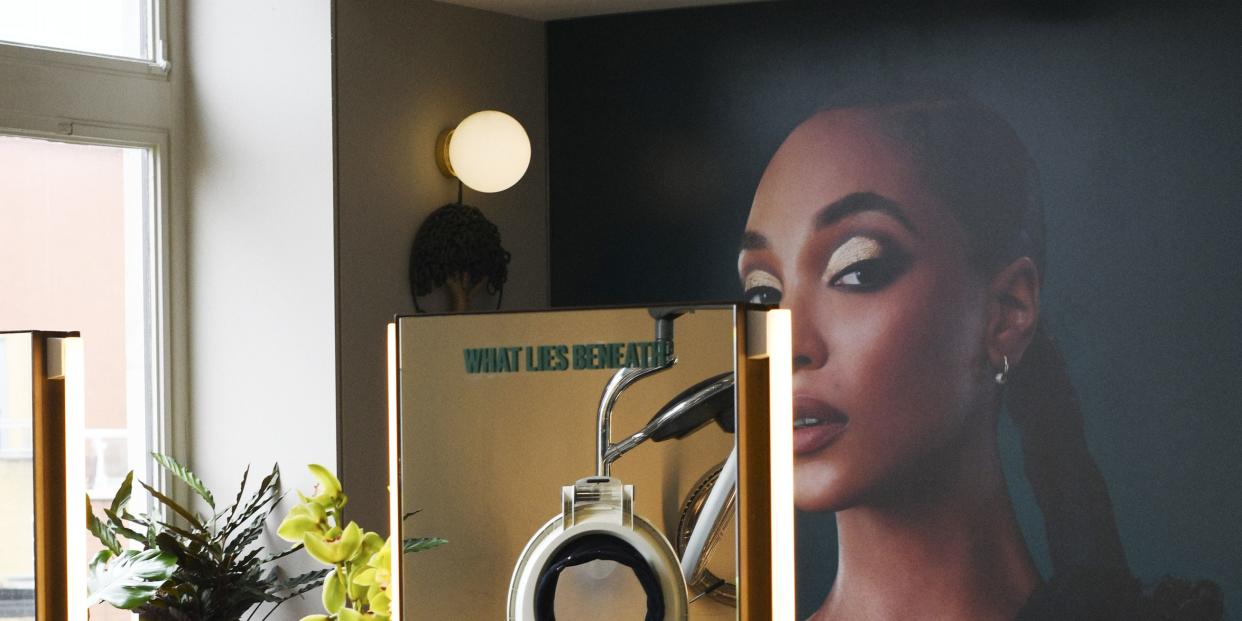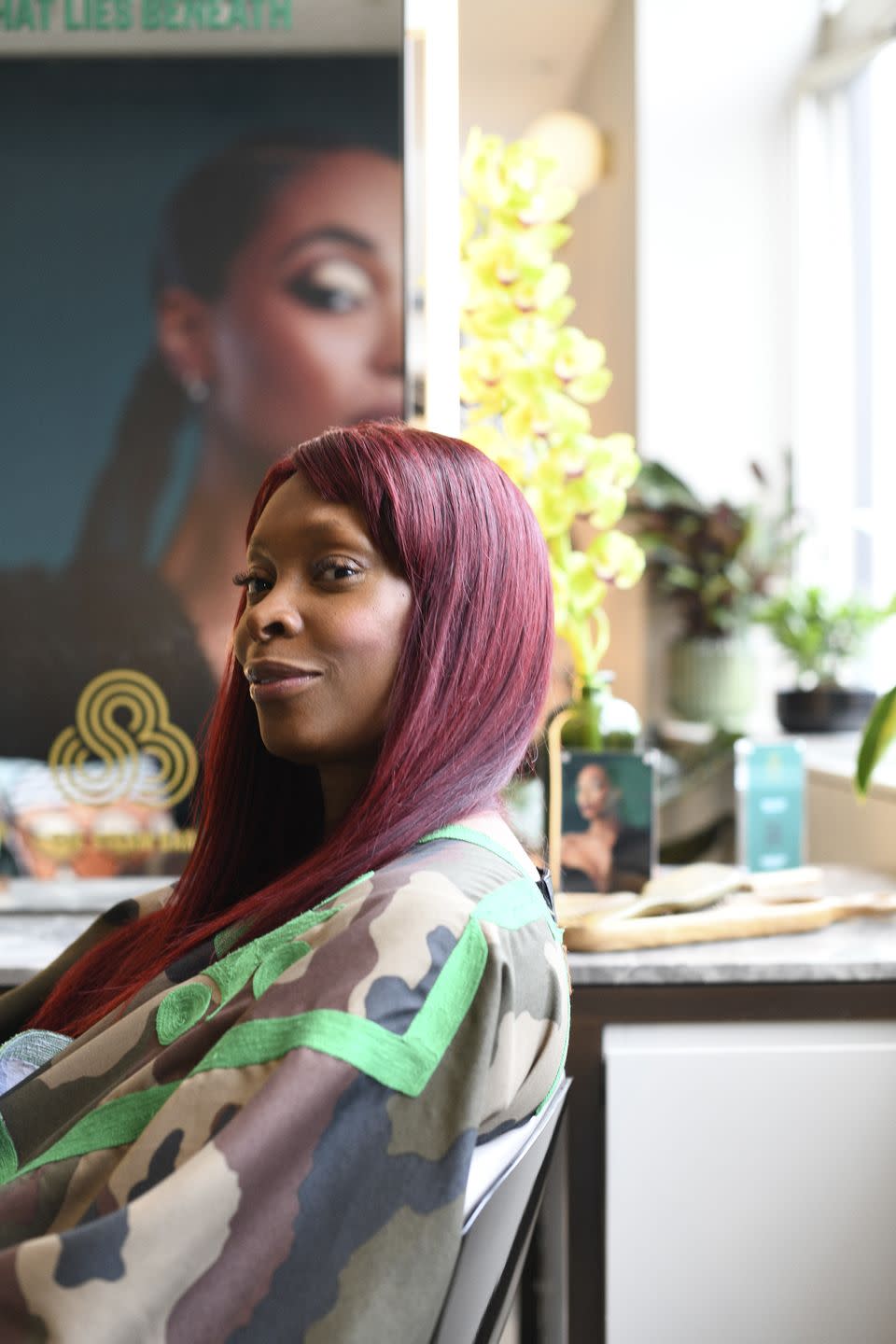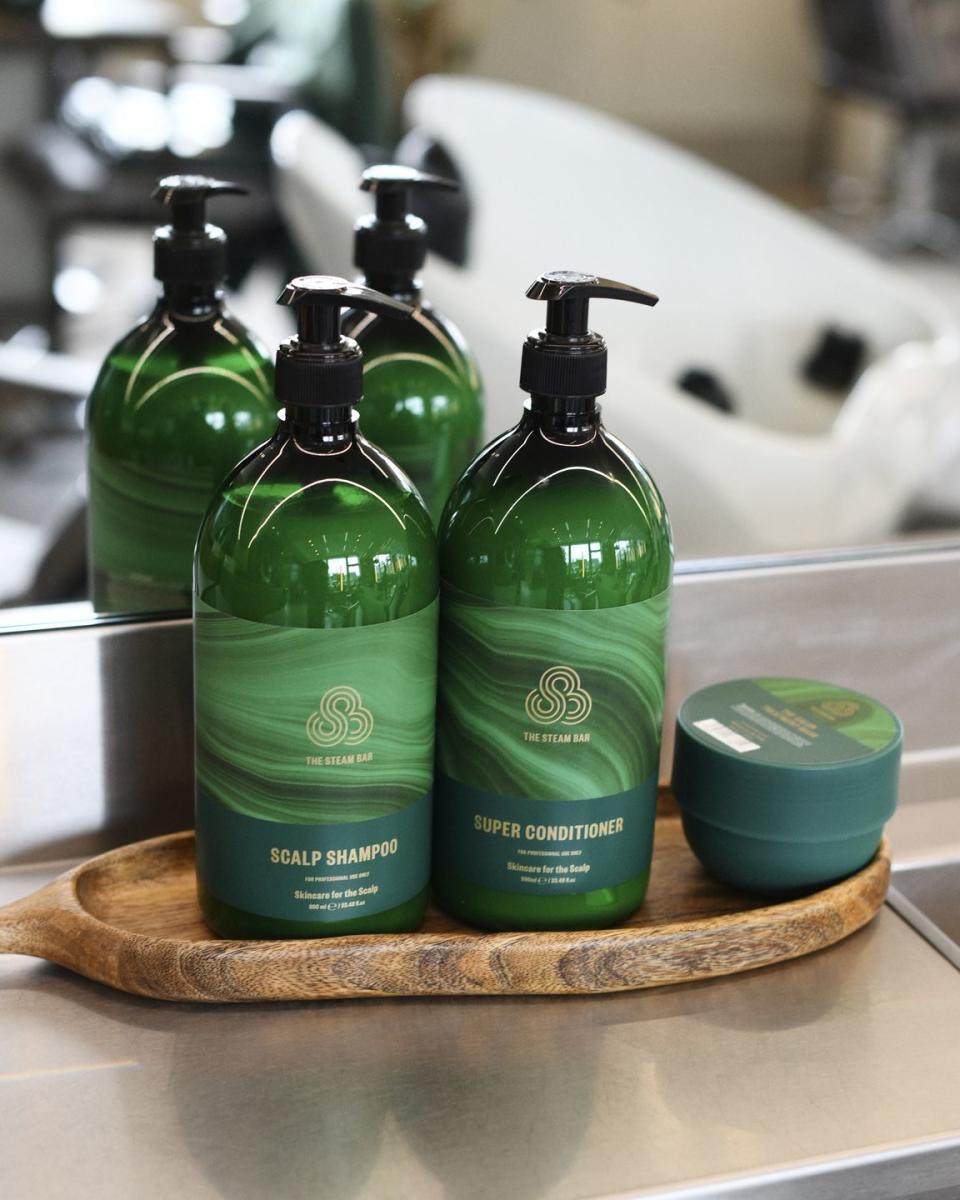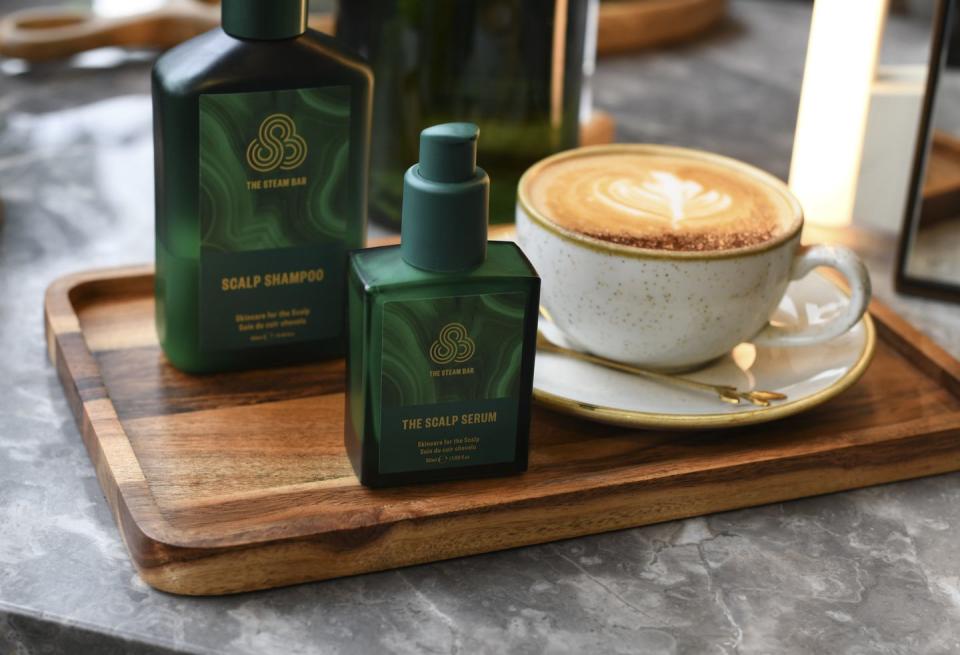Meet The First Afro Hair-Textured Salon To Launch In Selfridges

Judy Koloko, founder of The Steam Bar, doesn’t come from a hairdressing or formulating background. For over a decade, she worked for artist management agency, CLM. But, back in 2020, when she presented Selfridges with an idea for a Black and curly hair-textured pop-up salon within its London flagship, they loved the idea. At that time, Koloko had no products or samples. What she did have was a brilliant vision of what The Steam Bar pop-up could be – a safe and beautiful experience for the Black hair community.
Fast-forward to today and The Steam Bar now sits on the 6th floor in Selfridges, operating within the renowned Daniel Galvin’s salon. It’s a big moment for the department store which, throughout its 115 year tenure, has not yet partnered with a Black hair salon. Koloko recalls that The Steam Bar salon was launched on the same day as The Steam Bar product line. 'They really did take a punt on us,' she notes.

Launched in March, it’s been a spectacular hit with Black customers, with prices ranging from £30 for cornrows to £200 for braids. 'The response to the launch with its team of trichologist-trained hair experts, known as "Steam Queens", has been incredible with influencers, tastemakers and customers racing to experience it,' says Emeline Ancelot, Selfridges beauty buying manager. Koloko attributes a huge part of her success to the mentors and advisors who have guided her and her co-founders Camilla Lowther and Jamil Shamasdin. They include high-profile names such as the British Beauty Council’s Millie Kendall and Net-a-Porter founder Natalie Massenet. 'We’ve had amazing people that have been instrumental in how we’ve brought the brand to life,' she says.
The co-sign from a luxury department store has given The Steam Bar much needed credibility. 'If you position yourself in a space like Selfridges, then people that don’t necessarily know the brand, but trust Selfridges,' Kolokolo says. 'They know Selfridges wouldn’t put a brand that’s crap into their space because it’s going to impact them.' That’s made winning over Black, and non-Black, customers a lot easier.
FIND OUT MORE ON ELLE COLLECTIVE
This partnership has been a long time coming, Kokolo tells us. Conversations about the pop-up first started when Black Lives Matter dominated the headlines back in 2020, where 'there was a greater awareness of an underserved market', particularly within the fashion and beauty industry, she explains. Training for Afro textured hair has only recently become part of the mainstream curriculum, but now the next generation of hairdressers are well versed in all hair types. Research by the likes of consultants McKinsey & Co has long highlighted the spending power of Black consumers – presenting an opportunity for Selfridges and other retailers.

These partnerships reflect a broader shift towards inclusivity in the beauty industry, says Tomi Talabi, founder of The Black Beauty Club, a community group focused on cultural conversations about the Black beauty sector. 'The industry is gradually acknowledging that brands and products tailored to Black needs can have broader appeal beyond the Black demographic; there are diverse, multi-ethnic individuals with curly and coily hair,' she adds. Other Black-owned salons can attest to that. Renowned hair stylist Charlotte Mensah, whose salon is located in the heart of London’s Notting Hill, has built a diverse client list including Zadie Smith and musician Griff.
Selfridges is changing the game when it comes to inclusive retail. Its list of Afro and curly hair textured brands is growing, with names such as Ruka Hair and Bread recently added to the list of brands stocked. It currently has eight Black owned haircare brands.
'A key takeaway from this partnership has been the success it has driven in diversifying our service offer and highlighting Selfridges as a beauty destination for all,' Ancelot says. The work doesn’t stop there. 'We will continue to explore our partnership with The Steam Bar as opportunities develop and will continue to stock the brand in our Beauty Workshop hair destination on the ground floor.'
For years, I’ve been loyal to a small salon in North London. But last month, I became curious and booked myself at The Steam Bar for a silk press. And it did not disappoint! It’s a shared experience between many Afro hair customers that the process of getting your hair done is incredibly time consuming, but cost effective. As lusterless as it may be spending six hours in a salon surrounded by screaming children (and adults), there’s something oddly comforting and familiar about that experience. For a long time it was the only option for many Black women; however, this new wave of high-end salons for Afro and curly-textured hair is picking up steam and many of us, myself included, are willing to pay the extra cash for a luxurious salon experience.

Koloko is part of a wave of premium Afro and curly hair-textured hair salons partnering with department stores. They’re rewriting the playbook and showcasing the spending power of Black consumers. Other beauty entrepreneurs are following in Koloko’s footsteps. Mimi Kone, founder of Afro hair salon Mimi et Mina, is keen to partner with a luxury department store. 'When you’re in a department store, the footfall is high. There are so many people coming in and out of that department store that it gives [your brand] visibility, awareness and the opportunity for other people to find your brand,' she says. 'That is what we want too… We want to uplift the Black woman’s experience and offer them a more luxurious service with high quality products.' Kone hints that a collaboration with a luxury department store could be on the cards very soon.
The pop-up is open until 24 June, but Koloko is keen to keep the pop-up in existence – either within Selfridges or relocating to another home. In the long term, both department stores and salons must work together to keep these partnerships alive, argues Talabi of The Black Beauty Club. 'Department stores need to build strong community relationships and engage with their target audiences. Similarly, Black-owned salons must maintain high standards of service and product quality for clients,' she says. 'This mutual commitment is critical to sustaining successful partnerships.'
ELLE Collective is a new community of fashion, beauty and culture lovers. For access to exclusive content, events, inspiring advice from our Editors and industry experts, as well the opportunity to meet designers, thought-leaders and stylists, become a member today HERE.
You Might Also Like


